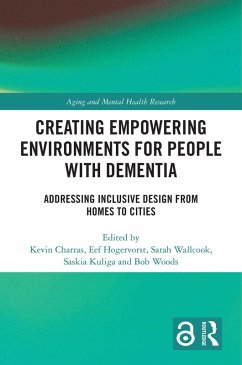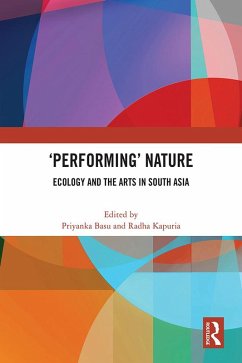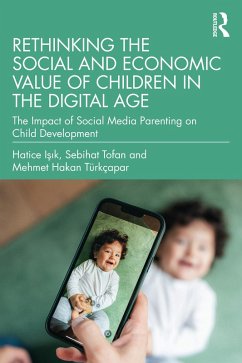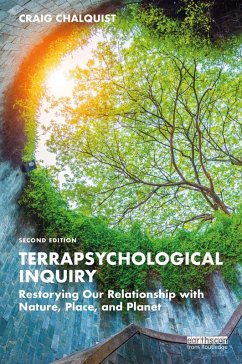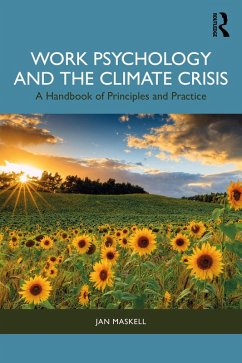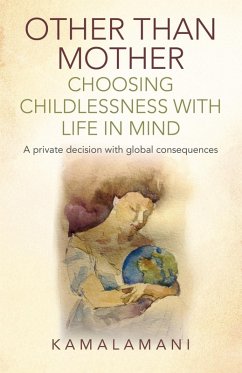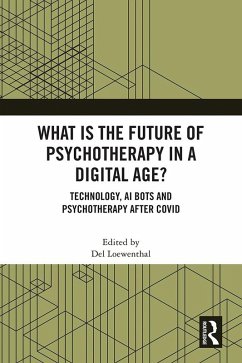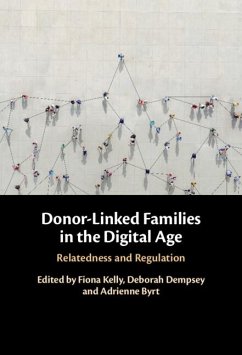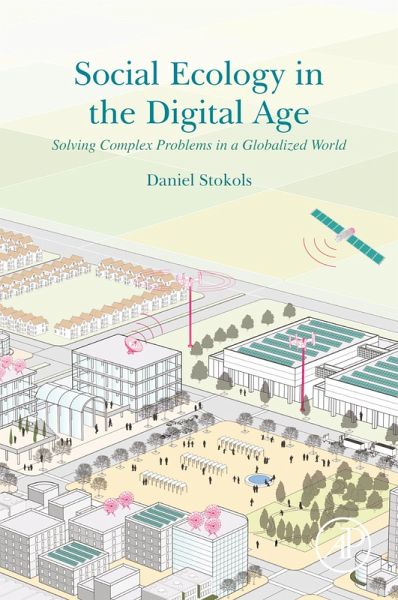
Social Ecology in the Digital Age (eBook, ePUB)
Solving Complex Problems in a Globalized World

PAYBACK Punkte
27 °P sammeln!
Social Ecology in the Digital Age: Solving Complex Problems in a Globalized World provides a comprehensive overview of social ecological theory, research, and practice. Written by renowned expert Daniel Stokols, the book distills key principles from diverse strands of ecological science, offering a robust framework for transdisciplinary research and societal problem-solving. The existential challenges of the 21st Century - global climate change and climate-change denial, environmental pollution, biodiversity loss, food insecurity, disease pandemics, inter-ethnic violence and the threat of nucl...
Social Ecology in the Digital Age: Solving Complex Problems in a Globalized World provides a comprehensive overview of social ecological theory, research, and practice. Written by renowned expert Daniel Stokols, the book distills key principles from diverse strands of ecological science, offering a robust framework for transdisciplinary research and societal problem-solving. The existential challenges of the 21st Century - global climate change and climate-change denial, environmental pollution, biodiversity loss, food insecurity, disease pandemics, inter-ethnic violence and the threat of nuclear war, cybercrime, the Digital Divide, and extreme poverty and income inequality confronting billions each day - cannot be understood and managed adequately from narrow disciplinary or political perspectives. Social Ecology in the Digital Age is grounded in scientific research but written in a personal and informal style from the vantage point of a former student, current teacher and scholar who has contributed over four decades to the field of social ecology. The book will be of interest to scholars, students, educators, government leaders and community practitioners working in several fields including social and human ecology, psychology, sociology, anthropology, criminology, law, education, biology, medicine, public health, earth system and sustainability science, geography, environmental design, urban planning, informatics, public policy and global governance. Winner of the 2018 Gerald L. Young Book Award from The Society for Human Ecology"Exemplifying the highest standards of scholarly work in the field of human ecology." societyforhumanecology.org/human-ecology-homepage/awards/gerald-l-young-book-award-in-human-ecology/ - The book traces historical origins and conceptual foundations of biological, human, and social ecology - Offers a new conceptual framework that brings together earlier approaches to social ecology and extends them in novel directions - Highlights the interrelations between four distinct but closely intertwined spheres of human environments: our natural, built, sociocultural, and virtual (cyber-based) surroundings - Spans local to global scales and individual, organizational, community, regional, and global levels of analysis - Applies core principles of social ecology to identify multi-level strategies for promoting personal and public health, resolving complex social problems, managing global environmental change, and creating resilient and sustainable communities - Underscores social ecology's vital importance for understanding and managing the environmental and political upheavals of the 21st Century - Highlights descriptive, analytic, and transformative (or moral) concerns of social ecology - Presents strategies for educating the next generation of social ecologists emphasizing transdisciplinary, team-based, translational, and transcultural approaches
Dieser Download kann aus rechtlichen Gründen nur mit Rechnungsadresse in A, B, BG, CY, CZ, D, DK, EW, E, FIN, F, GR, HR, H, IRL, I, LT, L, LR, M, NL, PL, P, R, S, SLO, SK ausgeliefert werden.




